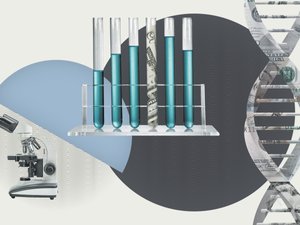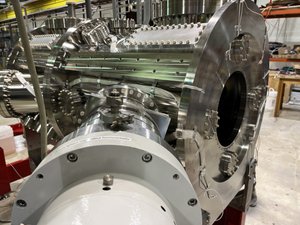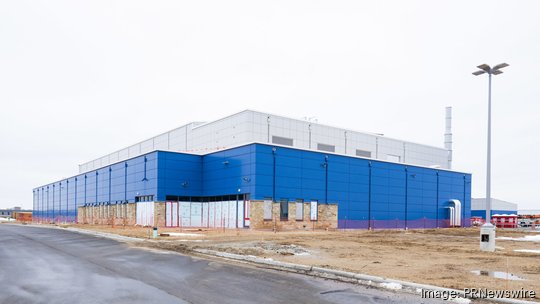
SHINE Technologies LLC, a next-generation fusion company, has been awarded $32 million from the U.S. Department of Energy for the development of its medical isotope production facility in Janesville.
The funding from the DOE's National Nuclear Security Administration comes through the agency's existing cooperative agreement with SHINE, the company said this week in a press release. The federal agency is helping to establish a reliable, U.S.-produced supply of molybdenum‑99 (Mo-99), the most commonly used medical isotope, without the use of highly enriched uranium.
Mo-99 is crucial in nuclear medicine, powering about 40 million diagnostic procedures every year, which assist in diagnosing life-threatening diseases including heart disease and cancer, the release says.
The funds will aid in the ongoing construction of Chrysalis, SHINE's large-scale medical isotope facility in Janesville, including construction, equipment and design. Upon its completion, Chrysalis is expected to provide a sustainable, reliable source of Mo-99 for the U.S. and satisfy more than one-third of the world's demand, according to the announcement. Commercial production is scheduled to begin in early 2027.
SHINE Technologies is not disclosing the total development cost for the facility, according to a spokeswoman.
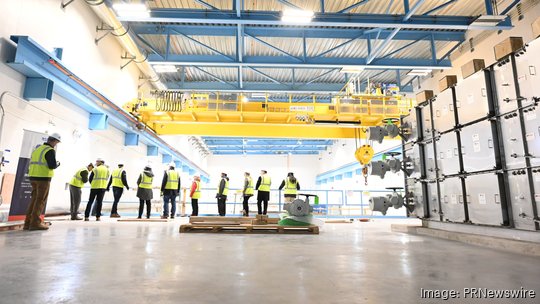
Only a handful of government-owned nuclear research reactors located abroad now produce Mo-99. Given Mo-99's half-life, about one-third of the product is lost during transport from other continents, the company said. SHINE's facility is expected to ensure a reliable supply chain.
"By creating a modern source of neutrons, we're helping solve critical isotope supply challenges here and now with a more sustainable platform for the long term," Greg Piefer, founder and CEO of SHINE, said in the release.
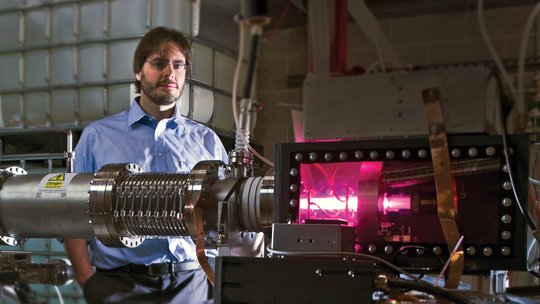
The cooperative agreement was awarded to SHINE in 2021 and is implemented under a 50%-50% cost-sharing arrangement. The additional funding brings the total agency funding value of the agreement to $74 million. Since 2010, the agency has awarded SHINE a total of at least $114 million toward the project.
Sign up here for the Milwaukee Business Journal’s free morning and afternoon daily newsletters to receive the latest business news impacting the Milwaukee area, and don't miss getting breaking news alerts on your phone by downloading our free app.
In October 2023, SHINE Technologies raised $70 million from investors to complete the commercialization and scale-up of its near-term fusion technology applications. The company is regarded by at least some investors as one of Wisconsin's most promising technology companies, having raised more than $750 million as of October 2023.
The production of medical isotopes is just one phase of the company's four-phase operational development plan. The previously completed phase involved using neutrons generated from fusion to detect flaws and defects in the hardware of aerospace, defense and other critical industry equipment. Phase 2 uses similar technology to produce therapeutic and diagnostic medical isotopes that combat heart disease, cancer and other illnesses.
Recycling and reusing the waste from spent nuclear fuel comprises Phase 3. Generating power from nuclear fusion reactions is the ultimate goal and the aim of Phase 4.
